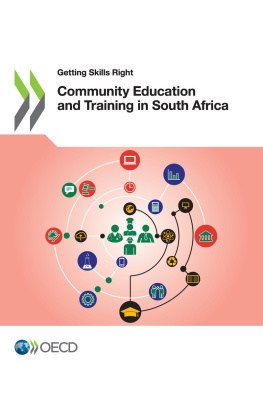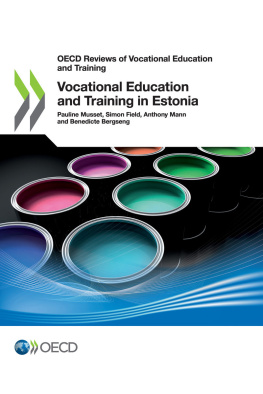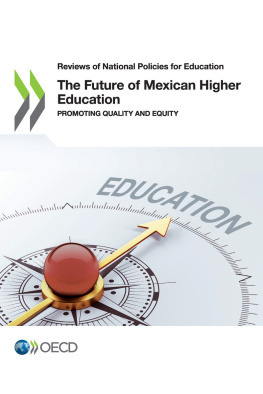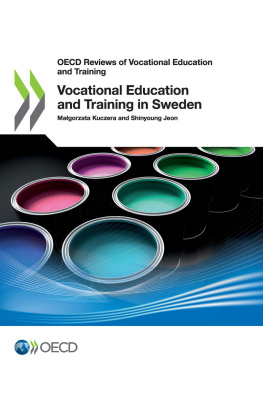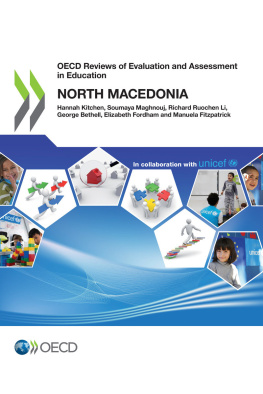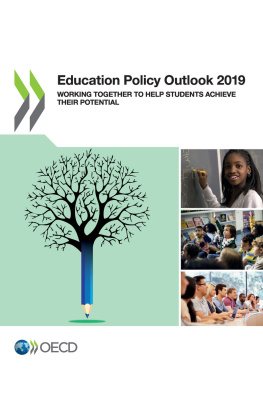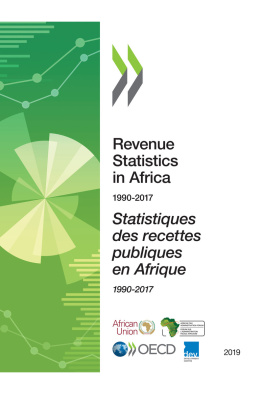OECD - Community Education and Training in South Africa
Here you can read online OECD - Community Education and Training in South Africa full text of the book (entire story) in english for free. Download pdf and epub, get meaning, cover and reviews about this ebook. year: 2019, publisher: OECD Publishing, genre: Politics. Description of the work, (preface) as well as reviews are available. Best literature library LitArk.com created for fans of good reading and offers a wide selection of genres:
Romance novel
Science fiction
Adventure
Detective
Science
History
Home and family
Prose
Art
Politics
Computer
Non-fiction
Religion
Business
Children
Humor
Choose a favorite category and find really read worthwhile books. Enjoy immersion in the world of imagination, feel the emotions of the characters or learn something new for yourself, make an fascinating discovery.
Community Education and Training in South Africa: summary, description and annotation
We offer to read an annotation, description, summary or preface (depends on what the author of the book "Community Education and Training in South Africa" wrote himself). If you haven't found the necessary information about the book — write in the comments, we will try to find it.
OECD: author's other books
Who wrote Community Education and Training in South Africa? Find out the surname, the name of the author of the book and a list of all author's works by series.
Community Education and Training in South Africa — read online for free the complete book (whole text) full work
Below is the text of the book, divided by pages. System saving the place of the last page read, allows you to conveniently read the book "Community Education and Training in South Africa" online for free, without having to search again every time where you left off. Put a bookmark, and you can go to the page where you finished reading at any time.
Font size:
Interval:
Bookmark:
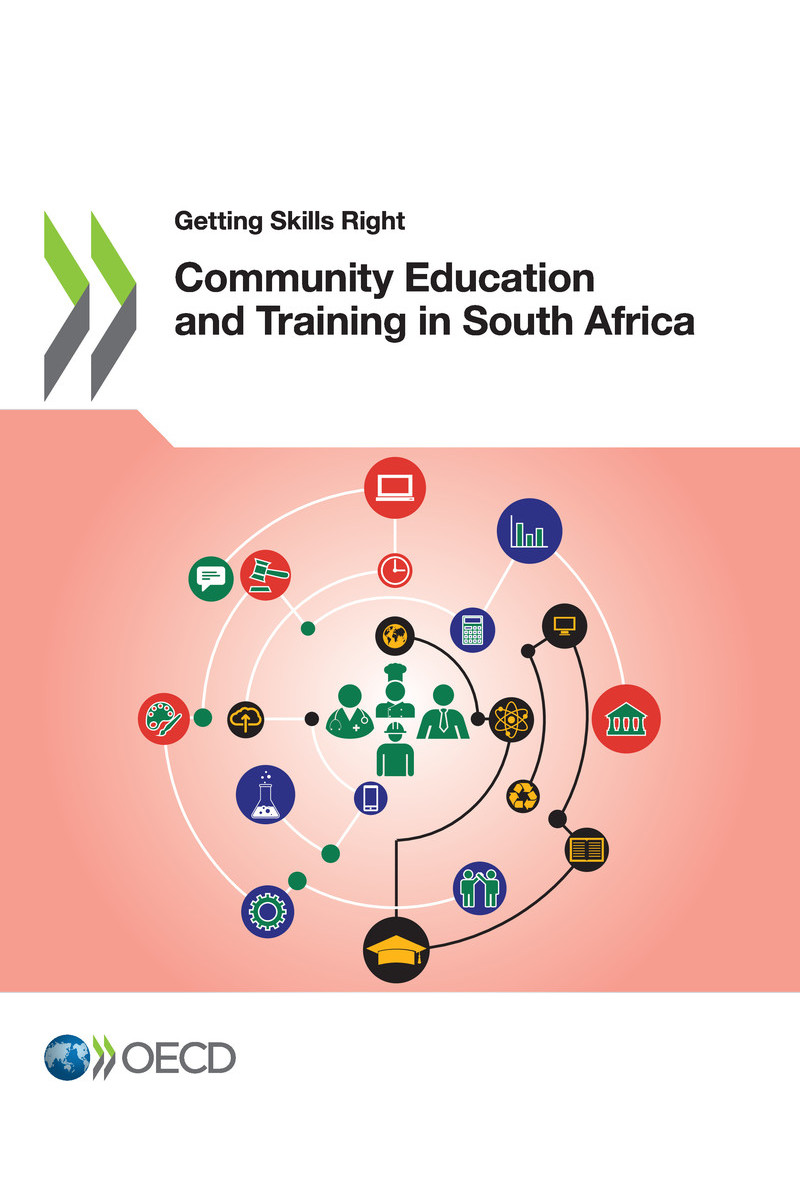
OECD (2019), Community Education and Training in South Africa , Getting Skills Right, OECD Publishing, Paris.
https://doi.org/10.1787/9789264312302-en
Under the impulse of global megatrends, such as technological progress and globalisation, the demand for and supply of skills has undergone substantial changes in recent decades. These changes can result in skills imbalances which can have strongly negative consequences for individuals, firms and societies. Individuals whose skills are not in demand in the labour market could face prolonged periods of joblessness, increasing the risk of poverty. When skills imbalances in the labour market are big, firms can have persistent difficulties in finding the right people, which could negatively affect their productivity. For societies as a whole, these imbalances could have a negative impact on growth and the overall well-being of the country.
Skills imbalances can be tackled through a range of policy interventions, including education and training, employment and migration policies. One of the key policy areas that can contribute to lower skills imbalances is lifelong learning. Adults who have left initial education, should invest regularly in keeping their skills up-to-date with what is needed in the labour market.
This report takes a closer look at lifelong learning in South Africa, with a focus on education and training activities provided by the Community Education and Training system. The report is structured as follows. Section 1 presents key statistics to show the urgency for investment in lifelong learning in South Africa. In Section 2 the current state of the Community Education and Training system in South Africa is described. Section 3 analyses the role that Community Education and Training could play, while Section 4 looks at possible funding mechanisms. Section 5 explores the topic of aligning training provision in the Community Education and Training system with local labour market and community needs, and Section 6 discusses the quality assurance of the system.
This work fits into a broader programme of work of the OECD on the functioning, effectiveness and resilience of adult learning systems across countries, and builds on the extensive work of the OECD in the area of skills, including rich analyses on the alignment between skills demand and supply, vocational education and training, and work-based learning.
The work on this report was carried out by Marieke Vandeweyer from the Skills and Employability Division of the Directorate for Employment, Labour and Social Affairs, with contributions by Pauline Musset from the OECD Centre for Skills. The work was supervised by Glenda Quintini (team manager on skills) and Mark Keese (Head of the Skills and Employability Division). The report has benefited from helpful comments provided by the Department for Higher Education and Training, and participants to a dedicated workshop organised in Johannesburg in October 2018.
This report is published under the responsibility of the Secretary-General of the OECD, with the financial assistance of the JPMorgan Chase Foundation. The views expressed in this report should not be taken to reflect the official position of the JPMorgan Chase Foundation.
Unemployment in South Africa remains persistently high, especially for low-skilled youth and adults. Upper secondary education (i.e. the National Senior Certificate) has become a minimum requirement for many jobs, and employers are looking for workers with strong cognitive and technical skills. While educational attainment is on the rise in South Africa, many students still leave initial education without an upper secondary degree. Today, around 19 million South African adults, or 57% of the South African adult population, do not have an upper secondary degree. At the same time, opportunities for adults to participate in training after leaving initial education are scarce. There is a strong need for more and better second chance education and training opportunities for adults who are in need of up-skilling or re-skilling to gain sustained access to jobs.
Font size:
Interval:
Bookmark:
Similar books «Community Education and Training in South Africa»
Look at similar books to Community Education and Training in South Africa. We have selected literature similar in name and meaning in the hope of providing readers with more options to find new, interesting, not yet read works.
Discussion, reviews of the book Community Education and Training in South Africa and just readers' own opinions. Leave your comments, write what you think about the work, its meaning or the main characters. Specify what exactly you liked and what you didn't like, and why you think so.

